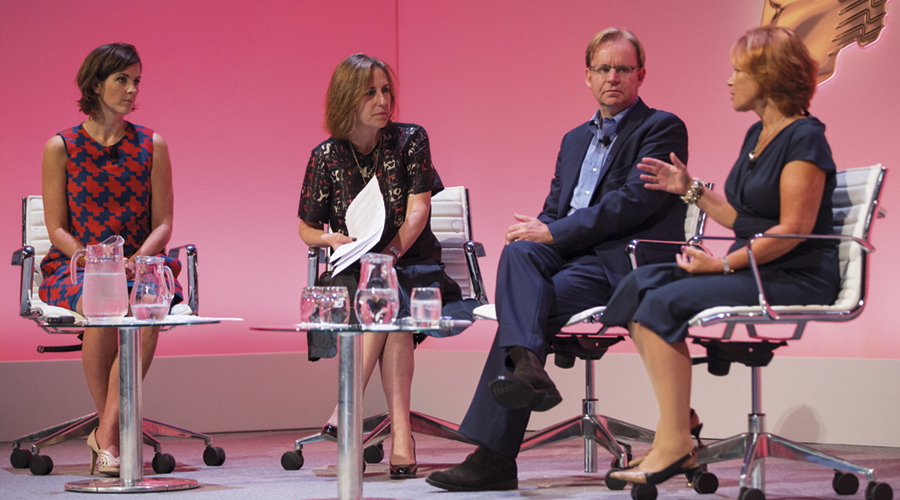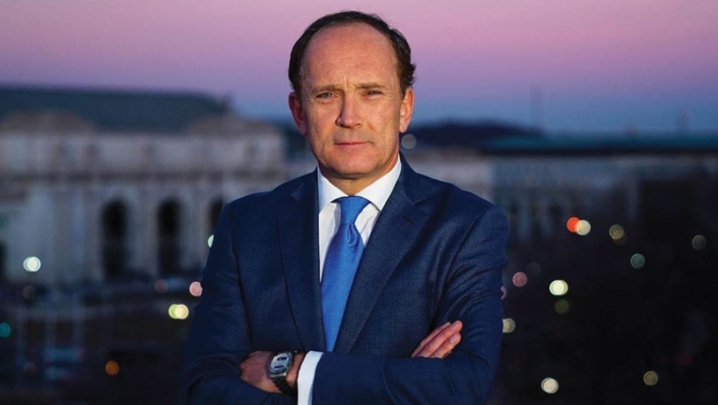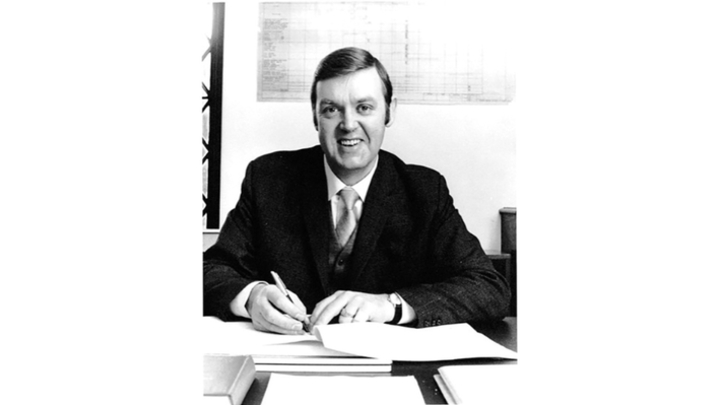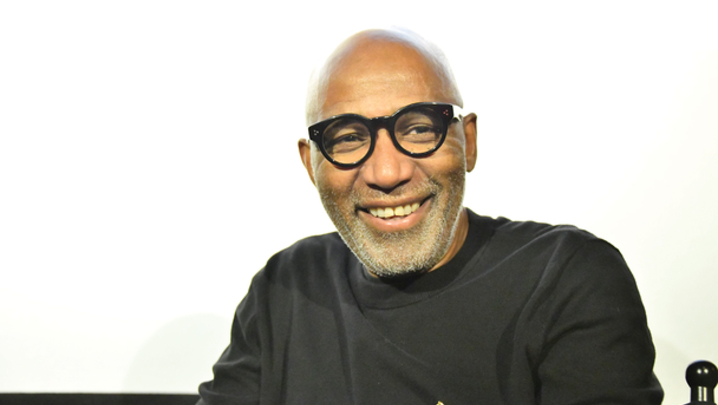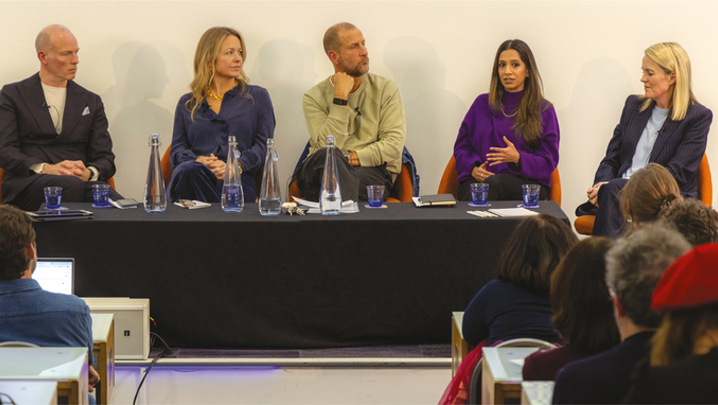Are UK-based mega-indies pioneering a new studio model?
Take three forthright, confident, key players at the very centre of the fast-changing and consolidating British television market. Put them together on a panel overseen by Newsnight's feisty Kirsty Wark. Then listen hard.
This session fizzed, producing a stream of insights, strong opinion and – a rather British bonus – laughter.
Wark posed the question – "What is going on behind the sudden flurry of activity?" – to Kevin Lygo, MD of ITV Studios, and Alex Mahon, CEO of Shine Group. Both are directly involved in current deal making, but rarely spotted in public, let alone speaking together on the same platform.
Also adding her take was Lorraine Heggessey, the former BBC One Controller, who now, after her two-year, educative sortie merging two UK indies, Boom and Twofour, is currently tied up in a legal dispute with the company.
To recap, this year Liberty Global and Discovery have established a joint venture to buy All3Media in a deal reported to be worth more than £500m.
Viacom recently completed its acquisition of Channel 5, and two of the UK's biggest production companies, 21st Century Fox-owned Shine and Endemol, are in a joint venture to form a £1bn-turnover mega-indie – wickedly parodied as "Shendemol" by RTS President Peter Bazalgette.
A sceptical Wark stirred the pot: "Is this simply opportunism driven by companies with excess cash, or are we seeing the next phase of the restructuring of Britain's media?
"Does ITV have what it takes to be a global giant? What does it all mean for the UK's independent production sector?"
Lygo, busy helping to reverse the US takeover trend, is consolidating ITV's position as the largest producer of non-scripted programming in the US (he described the genre as the "bastard offspring of the docu soaps").
"We spent a while looking, and we discovered, for example, that scripted drama is the domain of the studios, and so that was ruled out," said Lygo.
Wark interjected: "People want scale. Size is important?"
Lygo deadpanned: "Yes, size is important. But this was very hard as far as the UK went. We could achieve more scale in the US. We were impatient, so acquisition was the quick route."
Indeed, ITV has spent over £300m on 10 deals since 2010 and shows no sign of stopping. Lygo took a plane to LA immediately after the conference.
 Mahon, speaking publicly about the deal with Endemol for the first time (see box, opposite), said the M&A activity was "completely natural". US channels and major players want to acquire content makers and are involved in an arms race to buy into UK companies.
Mahon, speaking publicly about the deal with Endemol for the first time (see box, opposite), said the M&A activity was "completely natural". US channels and major players want to acquire content makers and are involved in an arms race to buy into UK companies.
Debt is currently cheap and the options attractive. "And there's not many left" of the biggest indies, with turnovers in the region of £500m (the buzz at the event was that Tinopolis could fall next).
Heggessey added: "What Alex was saying, what we are getting now is beyond super-indies, we're getting mega-indies."
"Whatever size you are, you have certain problems, maybe too heavy an overhead. Merging Shine and Endemol makes complete sense – there are lots of economies of scale.
"The technological companies have spent a lot of money building platforms and they now need content to put on them and are starting to invest," Heggessey continued.
"Plus private equity also has a lot of money to invest.
"What has happened in the UK, as Alex said, is a few companies are turning over £500m-plus, [but] there are a lot of companies turning over £10m, £20m..."
Heggessey called herself a consolidator. "What I spotted when I was building Boom was this gap in the market. My aim was to build a company that would be of an enterprise value of around £100m.
"What we are getting now is beyond super-indies, we're getting mega-indies" Heggessey
"I thought it would take five years, it actually only took two. There is money and a real appetite for this.
"The Americans won't be looking at small start-ups. [They are] too small for the likes of Fox. That is why I was looking for smaller companies, to do that work for them, if you like."
But Lygo stressed that ITV's approach is fundamentally different to venture capitalists buying to sell on: "We're an end user. We do not intend to flog it and sell it later.
"We understand the television business – production companies are not on a smooth growth curve. We take a more benign view."
Lygo cautioned that it would be "misguided to think of these mergers between production companies as [like] GlaxoSmithKline".
Pointing to ITV's purchase of UK indies The Garden and Big Talk, he said: "It comes down to a few people in companies who create programmes, one or two key people, best in class – really, really good at what they do.
"The relationship there is not big ITV, which sits on them. They run their own shop. But they can talk to me and others... then we add the scale of investment."
When it comes to success in television, he noted, "We're talking about a few programmes. Fox has never given a presentation without The Simpsons coming up. It's an extraordinary programme, on which a business is based. No one really knows how big a show can become".
Mahon said that TV production UK-style had become a low-margin business. Net profit margins had fallen in the past five years from 13% to 5.3% in the UK sector, excluding revenue from foreign sales.
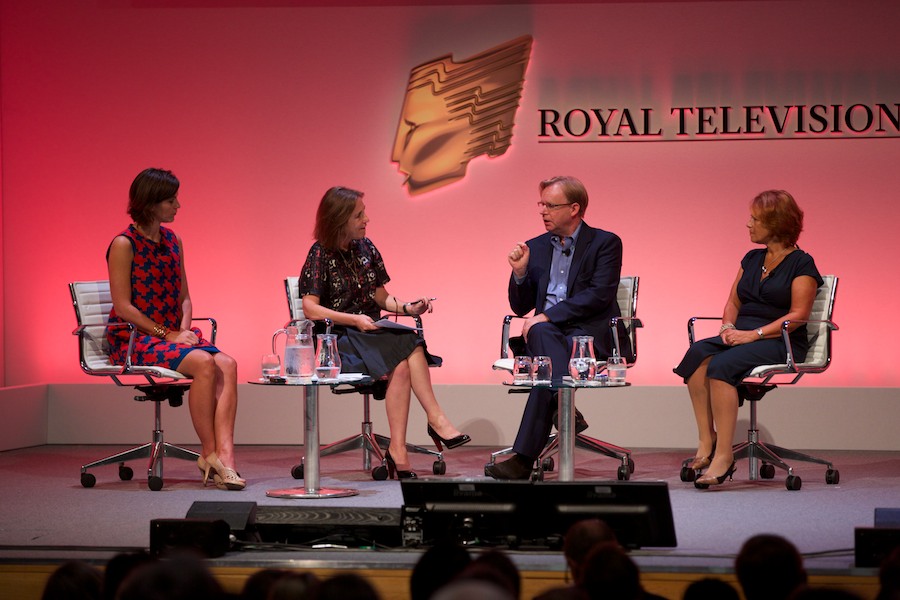
"As indies, [we have] less money to make the same show, while audience expectation... is going up.
"So we have higher and higher quality, lower and lower prices. And then this push comes from Channel 4 to get more of the theoretical billions and billions it thinks we are making."
This was a reference to Channel 4's recent announcement that it has taken minority stakes in four indies.
Meanwhile, valuations are high, with ITV's buying spree also driving bids up.
On the other hand, Heggessey said, "What might be exciting about the Shine/Endemol deal is that it will be our first major studio."
She added: "If we could get to that stage, [UK studios could have a market] like the LA Screenings, showing their wares, broadcasters bidding for them – that would be such a shift in the market.
"At the moment we are the supplicants at the table... 'Please take this programme.'"
Heggessey challenged Lygo on ITV's US strategy. She suggested that ITV was buying US companies because its UK studios business was "stalling", and pointed out that the US companies ITV that had purchased do not own their intellectual property.
Lygo brushed her off, deflecting the attack by debunking the "obsession with ownership of rights. Often, they are not worth that much. In the US, long runs mean that you can make a very decent business as a producer."
He added: "When a company such as Discovery or A&E commissions you to make a programme, it pays you a very decent amount of money. In effect, it is buying up your rights.
"You could hold them back, but the truth is that some of the big shows you wouldn't sell for as much money as you are getting to make them."
From the floor, Broadcast Editor Chris Curtis wanted to know "how powerful a rival a liberated BBC production arm would be".
Lygo replied: "I don't mind. I love the idea of how long it would take. I welcome more competition."
Mahon agreed. Heggessey quipped: "It will be very complicated. There will be a manual!"
Session Three, 'Tomorrow the World', was produced by Alex Graham and chaired by broadcaster and journalist Kirsty Wark. The panellists were: Lorraine Heggessey; Kevin Lygo, Managing Director, ITV Studios; and Alex Mahon, CEO, Shine Group.
Who will shape 'Shendemol'?
Kirsty Wark wanted to know which of the two big beasts, Shine or Endemol, would emerge as the winner in their merger deal.
Shine Group CEO Alex Mahon replied: 'We won't know until we come together as a company.'
Wark persisted: was this a defensive deal to stop someone else?
Mahon said: 'No, it is definitely about scale. Both companies are full of really good, creative people. We [Shine] tend to be factual and scripted. They tend to be entertainment and game shows, but both are interested in really great content. That's what you have to keep at the centre of how you run a company.'
Mahon insisted that since being acquired by Fox three years ago, the group hadn't really changed. It continued to operate a number of independent production companies, each with its own office and culture.
What had changed was 'the ability to deficit fund', backed by its US owner: 'We wouldn't have had the chance to do that before. We have a strong shareholder with lots of cash, who understands what television is.
'We can deficit the US version of Broadchurch, which is tens of millions... The world is going that way.'
As to whether 21st Century Fox's Chase Carey would use the new entity as a scout for more UK takeovers Mahon said: 'I think he said this is a big acquisition, then it is [about] organic growth from here.'
Are dollars dangerous?
Channel 4 CEO David Abraham's MacTaggart Lecture, 'After the Gold Rush', argued that US ownership of British broadcasters and producers threatens UK public service broadcasting, and that the terms of trade need to be 'fairer'.
Kevin Lygo said: 'The American thing was silly. I didn't quite get it. It seems to me, Americans make wonderful television all of us love, some of the best TV around.'
The former Channel 4 Director of Television and Content added: 'I don't see how you can equate size with a lack of creativity; again, a lot of the bigger companies own the best programmes.'
But he gave some credit for the focus on smaller independents. 'Yes, it is great for Channel 4 to look after little companies. I see the creation of a good programme as something someone in their attic can absolutely do – and you see it in the US.
'One of the reasons there isn't an independent sector of the sort in the US as here is that if somebody has come up with something really good, they write a script [and] immediately one of the studios gives them a deal... these deals are good. People earn a lot of money. [The idea] gets immediate scale and backing.'
Alex Mahon suggested that Channel 4's strategy 'seems to be to punish the big indies by giving them the worst deals. The big indies tend to be already non-qualifying indies' (not covered by the terms of trade because they are owned by broadcasters).
She added: 'Channel 4 is asking to renegotiate those terms. I think it is somewhat illogical. It doesn't seem wholly thought through as a strategy.'
Lorraine Heggessey agreed: 'All broadcasters are feeling the squeeze. They get into a defensive position, and the easiest thing is to attack the terms of trade, because they think we are making loads of money out of them'.

